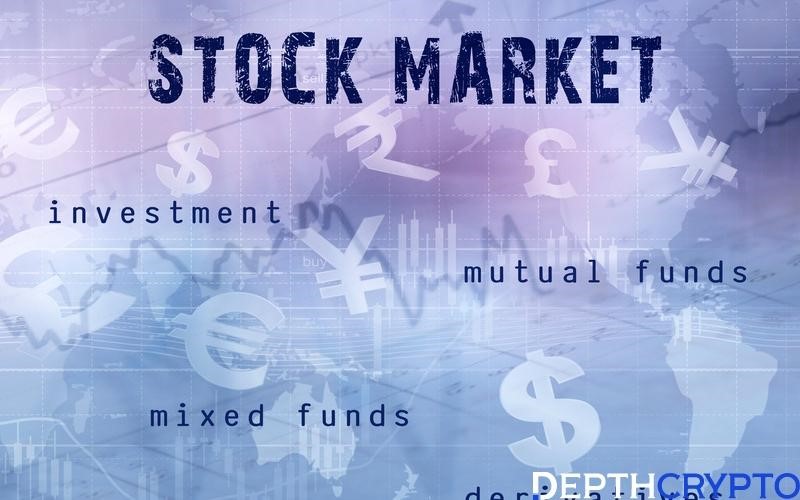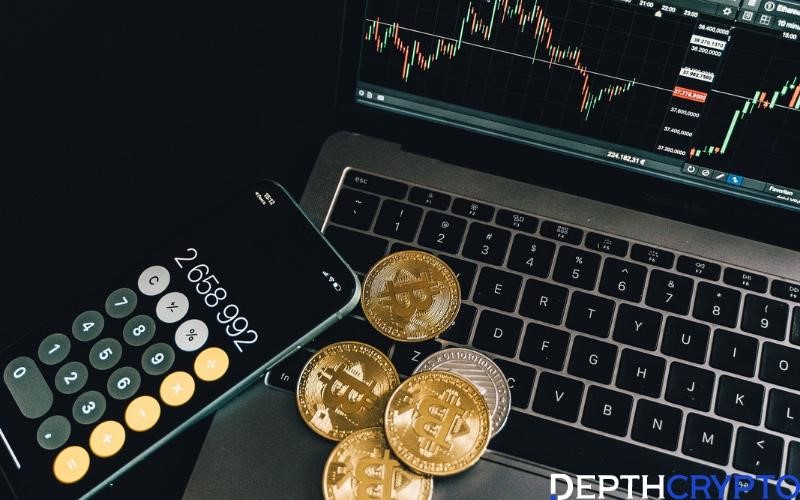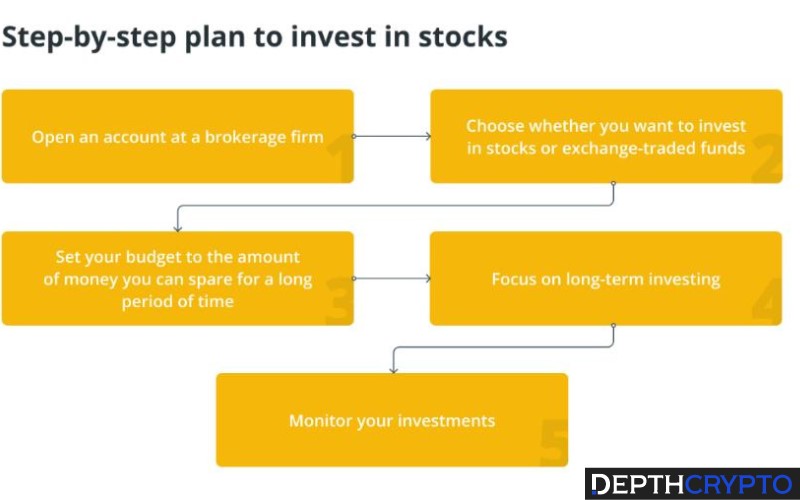
Crypto vs. Stocks
Crypto has been buzzing and getting the attention of everyone who cares. From the dizzying highs to the terrifying lows, crypto has been on the news.
Are you ready to invest but need help deciding which portfolio to invest in? Is it the all-hyped Crypto or the century-old Stocks?
Meanwhile, before you decide, there’s much to consider, such as comfort, risk, reward, volatility, liquidity, etc.
To help you make an informed decision, we have everything you need to know about crypto and stocks in this comprehensive guide.
A brief crypto overview
What is cryptocurrency?
With all the hype and buzz, it’s hard to believe that cryptocurrency wasn’t even a known word two decades ago.
Cryptocurrency is a digital currency that uses cryptographic technology to process and secure transactions. It’s a medium of exchange that’s independent of regulation. Crypto diehard fans promote crypto as the future of finance.
Blockchain
Cryptos use underlying blockchain technology. The Blockchain is an open and distributed public ledger across several computers that track and record transactions. Completed transactions are locked in blocks that are connected.
The Blockchain boasts of the following properties:
- Immutability
- Security
- Decentralization
- Transparency
Digital asset

Instead of being backed by the government or central banks, cryptocurrencies rely on decentralization. It’s controlled across networks of computers. You can buy, sell, store, or transfer your crypto coins. Your private keys confer exclusive access to your digital asset only to you.
Cryptocurrencies are gradually gaining adoption as digital currencies. More businesses and brands, like Microsoft, Wikipedia, KFC, Twitch, etc., accept crypto as payment.
The first country to accept Bitcoin was El Salvador in 2021.
Popular types of cryptocurrencies

As of November 2022, there are almost 21,000 cryptocurrencies. However, Bitcoin (BTC) is the oldest and most popular crypto, often referred to as the first-generation cryptocurrency, with a market cap of $309.9 billion [1]. Other cryptocurrencies aside from Bitcoin are called altcoins. They include:
Ethereum (ETH), the second-generation cryptocurrency with a market cap of $138.1 billion, is the second-generation cryptocurrency. Solana (SOL) and Cardano (ADA) are third-generation cryptocurrencies, and so on.
Other popular altcoins are:
- Ripple (XRP) has a market cap of $18.6 billion.
- Polygon (MATIC) has a market cap of $7.4 billion.
- Dogecoin (DOGE) has a market cap of $10.3 billion.
- Tether (USDT) with a market cap of $65.5 billion.
- U.S. Dollar Coin (USDC) has a market cap of $44.1 billion.
- Binance Coin (BNB) has a market cap of $42.2 billion.
- Binance USD (BUSD) has a market cap of $22.78 billion.
Ups and downs

Cryptocurrencies are highly volatile assets. The prices could plummet as quickly as they spike up. For instance, Bitcoin went from $28,383 to more than $65,000 in 2021. And in 2022, Bitcoin’s price further dropped to $16,000 apiece.
One reason for this volatility is that cryptocurrencies heavily rely on demand and supply instead of being backed by cash flow or assets. Thus, market speculation determines each crypto’s price. If there’s a limited supply, prices shoot up. Otherwise, it drops when there’s excessive demand.
Investment vehicles
Cryptocurrencies like Bitcoin offer you fractional shares for lesser amounts. The minor division of a Bitcoin is called a satoshi. Satoshi is the one-millionth share of one Bitcoin (0.00000001 bitcoin). And as of November 2022, one satoshi goes for $0.000164 [2].
Aside from Bitcoin, there are other vehicles, such as cryptocurrency funds, that some entities operate.
In 2021, cryptocurrency became an investment vehicle because the Securities and Exchange Commission (SEC) authorized the trading of an exchange-traded fund (ETF) related to Bitcoin. Hence, the authorization enabled brokerage firms to join the crypto industry.
A quick review of stocks

Investors choose whether to purchase common or preferred shares, depending on their investment goals.
Stocks, what are they?
Stock confers a fraction of a company’s ownership to you. The founder of a company sells shares in exchange for investors’ funds. While the founder can raise more money, you, as an investor, get a percentage of his company’s assets and cash flow. The cash flow backs your investment and gives your investment intrinsic value.
Shareholders can participate in the company by voting to elect board members or deliberating on corporate policies provided at annual stockholder meetings. Shareholders can have a say in the company’s direction.
Why stocks fluctuate

Stock prices depend on the company’s success and performance. The stock’s price will increase long-term if the company maintains excellent growth over time. Thus, the stock price fluctuates as investors assess the company’s prospects.
The underlying company must maintain an excellent track record for a successful stock investment.
Deriving value
The higher the company’s growth, sales, and profit, the better the stock’s value and the happier the investors. Moreso, stock prices increase when corporate perform better.
In contrast, stock prices decrease when corporate perform below standard or due to poor economic conditions.
Stockholders earn more ROI if the company pays dividends. While paying dividends isn’t generic, well-established companies with stable incomes tend to pay dividends. Other booming businesses may prefer to reinvest their gains into the company.
Classes of stock

The two types of stocks you can own are preferred and common stock. Preferred shares allow you to enjoy preferential treatment, such as receiving your dividends on time and at a higher rate.
In the event of the company’s liquidation, you also receive payouts before common shareholders. However, you miss out on the voting rights that common shareholders wield.
Common stock is a type of security [3] known as voting, equity, or ordinary shares. It gives you the right to share in the company’s profits and to vote on matters of corporate policy and the members of the board of directors.
However, you don’t own any particular company assets that belong to all the shareholders.
In the event of liquidation, you receive whatever is remaining after creditors, employees, bondholders, and preference shareholders are paid. If the liquidation is due to bankruptcy, you receive nothing.
The common stock is more vulnerable to the company’s risk than the preferred stock. The good thing is that despite its short-term volatility, it can potentially exceed more secure investments.
Pros and Cons of Investing in Crypto

Pros
1. Decentralization
Founded during a turbulent period when people distrusted banks and governments (the 2007-2008 global financial crisis), cryptocurrency couldn’t have come at a better time.
Its decentralization promise is a feature that appeals to most people. So that power and control remain with the people instead of a central authority.
Seasoned investors have regarded cryptocurrency as “digital gold” because they believe it’s a store of value that’ll rescue them from inflation.
2. High reward potential
Imagine buying Bitcoin when it was around 100 bucks. You’d be retired and busy enjoying your rewards.
Crypto coins are high-risk and high-reward assets. As we have seen with other cryptos, their prices can surge to the moon. Cryptocurrencies can generate insane ROI for you. However, you could lose your investment as quickly as you gain more.
3. Increase acceptance of digital currencies
The mainstream media, governments, and giants like Tesla accept crypto as an alternative to fiat. El Salvador accepted Bitcoin as its legal tender. Tesla accepted crypto as payment before reversing its decision. Microsoft accepts crypto payments. And the list goes on.
The interest shows that cryptocurrencies are here to stay, and mainstream adoption is a matter of “when” not “if.” The increasing interest is just as suitable for investors
Cons
1. Highly speculative and volatile
Cryptocurrencies aren’t backed by anything. Thus, their prices are volatile and depend on market speculation. No one knows how or when the market will be favorable.
2. Security risks and Scams
Losing money to scammers is one thing. Recovering stolen funds is another. Unfortunately, tracking and recovering stolen funds in the crypto space is difficult. For a technology hyped as secure, it leaves a lot to wish for.
In crypto’s defense, however, we can say the technology is still in its infancy. As crypto technology continues to develop, we’d likely see fewer scams. Meanwhile, according to Chain analysis, funds lost to crypto scams in 2022 amount to $3 billion! [4].
3. Regulatory risks
With dizzying highs and terrifying lows, billions of losses, and fraud projects, cryptocurrency may come under regulations.
Algeria, Qatar, Bangladesh, China, Egypt, Tunisia, and other countries have banned cryptocurrencies.
Pros and Cons of Investing in Stocks

Pros
1. Century-old ROI
Stocks have been around for centuries and have a track record for solid investment returns. Generally, supplies are more stable in the long term than short-term (stocks can be volatile in the short time).
2. Maintains the value
Stocks have a value backed by the company’s assets and cash flow. The better the company’s profits, the higher the stocks’ worth.
3. Accessibility
Unlike years ago, investing in stocks is more accessible and affordable as more online brokers minimize or eliminate trading fees. You can also pick a diversified basket of stocks through an index fund or go for individual stocks. You can enjoy low costs while building a diversified portfolio with index funds.
4. Backed by regulation
Many government-owned regulatory agencies secure the interest of investors and financial institutions through heavy regulations.
Cons
1. Volatility
Individual stocks are more volatile than a broad basket of stocks through index funds. However, the volatility is degrees lower than crypto’s volatility. For a successful stock investment, it’s better to hold long-term. This gives you time to regain any short-term losses
2. No high reward potential
Broad stock indexes have less potential for the insane profits found in cryptocurrencies. While digital coins can shoot up by 20% in days, it’d take Stocks a long time to achieve the feat.
10 Major Differences Between Crypto and Stocks

Crypto and stocks can be investments to grow wealth. However, before you venture into any, do your due diligence. After all, they come with varying risks, and it makes sense to understand them before you invest. The following section covers the properties of crypto and stocks:
1. Ownership
Cryptocurrency
When trading or dealing with cryptocurrency, nobody needs to know you. Most people find this crypto’s anonymity appealing. You can store crypto assets in a wallet — software or hardware.
You can keep your digital assets in your custody if you want to operate anonymously and have complete control over your assets.
If you don’t mind unveiling, you can have an exchange like Coinbase, Binance, etc., to keep your assets for you. To do this, you’d open an account on their platform and input your details. The downside of this option is that you have no control over your funds.
Stock
There’s no such thing as anonymity in stock. You are required to open an account with your chosen broker. To do so, you will provide personal details such as a street address, contact address, social security number, etc. The brokerage trades and holds your stock on your behalf. One benefit of using a broker is high security against fraud or identity theft.
2. Exchanges
Cryptocurrency
Crypto exchanges are as new as cryptocurrencies. You can keep your digital assets with decentralized exchanges (DEX) or centralized exchanges (CEX).
DEX enables peer-to-peer transactions directly from your wallet without an intermediary. Curve Finance3, PancakeSwap, Uniswap, and dYdX, are leading DEXs.
Centralized exchanges like Kucoin, Houbi, Coinbase, and Binance are owned and managed by private companies. CEXs expedite transactions between crypto buyers and sellers.
Stocks
A stock exchange is a marketplace for stockbrokers, traders, buyers, and sellers to trade in equities products. Depending on the jurisdiction, stock exchanges are heavily regulated to protect buyers and sellers.
Stock exchanges have been operating for two decades. Frankfurt Stock Exchange is the oldest stock exchange worldwide, founded in the late sixteenth century.
About 60 major global stock exchanges range in size and trading volumes. The New York Stock Exchange is the largest in the world, with an equity market capitalization of just over $ 22.1 trillion [5] as of October 2022.
3. Liquidity
Cryptocurrency
Crypto liquidity varies depending on individual digital coins and their trading volume. For instance, Bitcoin is more liquid than Polygon.
Stocks
Many investors regard Stocks as liquid assets.
Meanwhile, there’s a tendency for crypto and stock investors to encounter slippage. This happens when you sell a sizable portion of your asset during the lowest liquidity period. Crypto investors are more vulnerable to this loss.
4. Volatility
Cryptocurrency
The crypto market is almost synonymous with volatility. The top-performing coins have all experienced insane volatility. For instance, Bitcoin rose to an all-time high of nearly $ 69,000 in November 2021. In November 2022, it traded below $16,000.
Stocks
The stock market is not free from volatility either. Stock values can decrease just as quickly as they increase. The volatility is often due to technical or economic reasons. Unlike crypto, a complete loss is rare in the stock market.
5. Safe and secure

Cryptocurrency
The novelty of crypto technology and cryptocurrencies makes it challenging to determine how safe the market is.
Meanwhile, investing in cryptocurrency can be safe if you take caution and follow the best practices.
To be safe, invest what you can afford to lose.
Stocks
Generally, stocks are more stable and safer than cryptocurrency, especially long-term, because the company’s assets back them.
6. Regulation
Cryptocurrency
By design, cryptocurrencies are unregulated, a feature that can be a plus or negative sign. While it removes unnecessary governmental controls and leaves investors without legal backup.
Stocks
Central entities such as the U.S. Securities and Exchange Commission (SEC) were founded to regulate Stock markets in the best interest of investors strictly.
By law, financial institutions must provide investors with helpful information that may likely influence their stock value. From there, you can make informed decisions.
7. Trading Hours
Cryptocurrency
The crypto market is open and available seven days a week. You can do your business at your pace and convenience.
Stocks
Like banks, Stock markets are available only during working hours.
8. Diversification
Cryptocurrency
Many investors believe that cryptocurrencies could hedge against inflation. Some also consider that cryptos aren’t affected by market conditions.
Stocks
Inflation and other economic factors can impact the value of Stocks.
9. Costs
Cryptocurrency
When it comes to crypto, you can’t dodge trading fees like gas fees. Each digital coin has its unique gas fees depending on its Blockchain model. For Cryptocurrencies with slow speed, you may need to pay higher gas fees to hasten your transactions.
Stocks
No surprises, Stocks are riddled with even more expensive fees. Even if you invest in low-fee stocks, you’re required to pay a specific transaction fee.
10. The drawbacks
Cryptocurrency
For one, cryptocurrencies involve mouthwatering sums. Add the ‘no regulations,’ and you’ll understand why they’re scammers’ target. The most common scams are phishing links, rug pulls, pump and dump, discord hacks, etc.
Stocks
Even with the heavy-chain regulations, Stocks are prone to scams and security risks. Pump and dump are one of the most common stock scams. It involves inflating stock prices through exaggerated claims to lure investors. Once you buy the stock, the stock price deflates beyond the minimum.
How to invest in cryptocurrency?
Follow these six simple steps to buy a cryptocurrency:

How to invest in stocks
Follow these five easy steps to invest in stocks:

Conclusion
Cryptos and stocks offer investors many opportunities to grow wealth. The best part is that investing isn’t an either-or proposition. You can diversify your portfolio by investing in crypto and stock to balance the risk and reward levels. However, if you’d instead start with one first, ensure that your choice aligns with your risk tolerance.
Recommend reading:
Is cryptocurrency a good investment?
How to invest in Bitcoin How to make money with Bitcoin
Frequently Asked Questions
How can crypto markets impact stock markets?
Cryptocurrency and stock prices are connected. Many factors and conditions that affect one affect the other. Many investors deal with cryptos as they do with stocks.
9 Blockchain Stocks to Invest In
PayPal, Dash 2 Trade, NVIDIA, Mastercard, Visa, IMPT, Battle Infinity, IBM, Tamadoge, Lucky Block, and Oracle.
What are the most popular types of cryptocurrency?
We have Ethereum (ETH), Solana (SOL), Cardano (ADA), Ripple (XRP), Polygon (MATIC), Dogecoin (DOGE), Tether (USDT), U.S. Dollar Coin (USDC), Binance Coin (BNB), Binance USD (BUSD)
Is cryptocurrency the future?
Cryptocurrencies are here to stay.
As crypto technology evolves, so do cryptocurrencies. As of November 2022, there are about 21,000 cryptocurrencies. The numbers will ensure that cryptos survive well into the future.,
According to a survey, 53% of Americans agree that cryptocurrencies are the future of finance, of which 51% are Republicans, and 59% are Democrats.
Stocks or cryptocurrency — Which is safe?
Cryptocurrency is a good investment if you want to gain direct exposure to the demand for digital currency. However, stocks are safe and more stable investments but are less rewarding than crypto.
[2]. Satoshi price today, SATS to USD life, market cap, and chart. (n.d.-b). CoinMarketCap. https://coinmarketcap.com/currencies/satoshi/
[3]. Wikipedia contributors. (2022a, August 1). Common stock. Wikipedia. https://en.m.wikipedia.org/wiki/Common_stock
[4]. Chainalysis on. (2022, October 12). Twitter. https://twitter.com/chainalysis/status/1580312149557026817
[5]. Statista. (2022d, November 21). Largest stock exchange operators worldwide in 2022 by market cap of listed companies. https://www.statista.com/statistics/270126/largest-stock-exchange-operators-by-market-capitalization-of-listed-companies/
